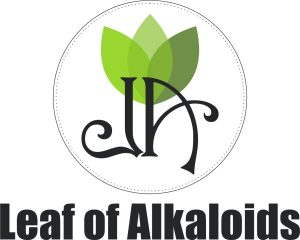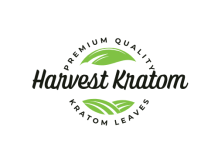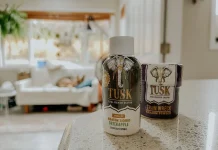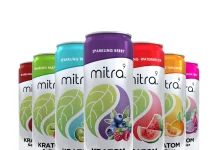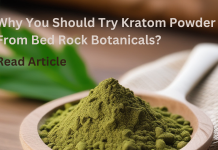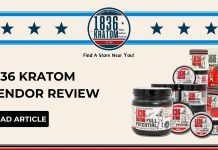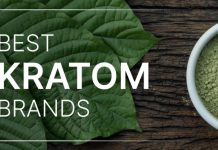The world is going crazy for CBD; however, many consumers have concerns regarding whether it can make them fail drug test!
The answer to this is, Yes and No!
Well, technically speaking, it is true, only if the CBD is pure, having zero THC (the main active ingredient of Marijuana). If an ample amount of THC is present, it will give a positive result on the drug test.
It is also dependant on the quality and composition of the product.
CBD is now the talk of the town and for good reasons, of course. It’s used to reduce chronic pain and spasms, inflammation, nausea, cardiovascular issues, anxiety and depression, and even Tumors, etc. all without getting you high.
Keeping reading further to learn about how to dodge this matter!
A little Insider
CBD is derived from the plant Cannabis sativa. These plants are comprised of hundreds of organic compounds apart from Cannabinoids, including flavonoids and Terpenes, etc.
The Cannabis plant consists of two parts; the Marijuana part and the Hemp one. Irrespective of being cousins, they both have different THC levels (a psychoactive chemical compound).
While Marijuana’s THC levels vary, Hemp products have a low THC content (0.3%) i.e. The THC levels may vary in different CBD products, and one should have awareness about how to analyze themselves.
Apart from the variety of plants, factors such as harvesting and extraction protocols may change CBD’s compound content.
What Is Full-Spectrum CBD?
A Full-spectrum CBD is composed of all of the naturally occurring compounds (CBD, Terpenes, Flavonoids, and THC, etc.) in the plant. Full-spectrum CBD extracts are usually driven from subspecies of Marijuana. A Full-spectrum hemp-derived CBD product has less than 0.3%THC. Full-spectrum CBD products are available on the market and usually range from oils, serums, and lotions, to even edibles.
How much THC must be present to register on a drug test?
To your surprise, most drug tests were not created to detect CBD, but to rule out impairment (physical or psychological damage), not to medically administrate anything or anyone; they usually detect THC and its metabolites. There are numerous reasons as to why the workplace drug screening exists; for safety and (legal) and even enhance productivity.
Positive drug tests result due to the presence of THC or TH-COOH (one of the main metabolites of THC). In 2017, the federal workplace (US) established specific values for drug dosage intake (limits) in order. This was done to avoid all possibilities of getting positive test results due to the presence of the compounds.
Do keep note that a negative test result does not mean your body might be free from THC or TH-COOH content (even if it’s in trace amounts). It does, however, indicate that the amount of it might be below the established value.
Usually, employers conduct either a five-panel or a ten-panel drug test in which they detect THC and its metabolites.
The majority of the CBD products have trace amounts of THC (0.3%). The issue is that CBD can be derived from both Marijuana and Hemp plants; both are derived from one parent plant−Cannabis Sativa. The only difference lies in the THC levels, and even a high THC content product may have CBD. Most tests used, detect the presence of THC, your CBD product having even trace amounts of THC may lead to a false positive drug screen. Even if you might not be using THC, or think you might not be, your CBD product will surely lead you to some worry.
Various testing methods
The cut-off values vary differently for each known drug testing methods. Here is more information about the different testing specimens taken, listed below:
Urine Test
A urine test (especially for Cannabis) is generally the most common type of test conducted, and particularly at workplaces. Urine tests usually detect the presence of THC’s metabolites like THC-COOH after it gets absorbed in your bloodstream.
The concentration of THC-COOH in urine should be around 50 ng/mL to trigger an affirmative test result. The THC metabolites have a detection window of about 3-15 days following the dosage/use.
However, frequent and heavy use of certain Cannabis (CBD) products may yield longer detection windows, even more than 30 days (chronic users).
Blood Test
When it comes to drug screening, blood tests are not usually performed much in comparison to urine tests. They are surely not likely to be conducted for testing workplaces. The reason for this is that THC doesn’t stay in the bloodstream for long; it stays in the blood plasma for a time span of 5 hours only, irrespective of the fact that THC metabolites can be detected for up to 7 days.
These tests are commonly used to specify any latest occurring impairment e.g. driving under the influence of substances; the THC blood concentration should be below 1ng/mL, 2ng/mL and even 5ng/mL otherwise it indicates impairment (even in states where Cannabis is considered legal). Other states still consider it illegal (zero-tolerance policy).
Saliva Test
This sort of testing is rather very rare. There are no cut-off limits fixed for sense THC in saliva. However, as per recommendations from certain sources, a cut-off value of 4 ng/mL has been established. You can detect THC metabolites for up to 72 hours in oral fluids and, in the case of heavy use, even longer than expected.
Hair Follicle Test
Testing hair follicles are the least conducted test. Like saliva testing, this, too, has no currently established cut-off limits for THC. However, private industry cut-offs have established a limit of 1 pg/mg of TH-COOH.
On an average of 90 days, the THC metabolites remain and can be detected from using hair follicles.
How Much THC Causes Positive Drug Test Results?
Well, it’s still hard to quote the exact amount; however, there are certain factors (which are drug as well as patient-specific) that can affect the results.
Here are some factors that can affect the timing of THC remaining in the urine or other biological samples to be detected:
- Frequency of the use of Marijuana or THC based products
- Presence of other drugs that may interact with THC or its metabolites
- Amount of product applied/consumed
- Route of administration of the drug
- Last ingestion timings
- Metabolism of the consumer
- Liver or kidney diseases etc.
As per standard marijuana metabolite (the delta-9- tetrahydrocannabinol-9-carboxylic acid) tests, an affirmative drug screen result 15 ng/mL or above.
Other Reasons Why The Use of CBD Might Give A Positive Drug Test
Several possibilities exist which can ensure positive results to a drug test. Here are a few reasons as to why:
Cross-contamination
During manufacturing i.e., extraction processes and even packaging of the CBD products, cross-contamination may occur even if THC is present in traces.
This issue arises for the manufacturers making products containing either pure CBD products (only CBD), or only THC products, and even those products that are a combination of both CBD and THC.
If supposedly CBD Oil is near products/substances having THC, cross-contamination may occur as well.
Indirect or passive exposure to Marijuana (THC)
Though it might seem unlikely, but a second-hand exposure to products ( mostly smokes) containing Marijuana/THC might give a positive result to drug screening.
The amount of absorbed THC is based on the product potency, and the area size and the ventilation space.
Product brand mislabelling
CBD is considered to be an over-the-counter drug (supplement), and the FDA doesn’t regulate the majority of the CBD based products; no third-party testing is conducted to check the composition of CBD products out. Technically, this makes it difficult to know what the products are exactly composed of. Mislabelling of product brands is highly common nowadays. Because of this, anyone can slap a “Zero THC” label and get away sneakingly.
Many products sold online have also been further tested, and almost 18 out of 64 of them had a much higher level of THC as claimed, high enough to lead to both impairment and cause intoxication. Such elevated levels may be high enough to lead you to fail a drug test.
CBD Converting Into THC?
Yes, this is possible; CBD may chemically transform into THC in the body. It usually happens if the conditions are acidic i.e., in the stomach.
Though, in-vitro research was conducted in 2016 and scientists concluded that the gastric juices might have reacted to convert CBD to THC; however, in 2017, it was deduced that such clinical trials were not a true representation of the human body.
How Can You Make Sure That A CBD Product Is THC Free?
Not all CBD products are the same; some might be safe, and others can be questionable. Always remember to do thorough research and evaluate all the CBD products you wish to try.
Always Read Product Descriptions And Do Thorough Research
Always evaluate any product before buying. Make sure to read product labels or descriptions given online and do know the important terminologies. Make sure the source is Hemp and not Marijuana and find out whether it is Full-spectrum or Broad-spectrum or a CBD isolate.
Remember, if any information seems shady or is missing, then do not go for it; it’s a sign of sneaky dealers selling fake products.
Make sure you are aware of the terms like organic certified (USDA), Co2 extracted, pesticides, herbicides and solvent-free, third-party lab tested, and so on.
Buy Products Having Maximum Amount Of CBD
The concentration of CBD (per dose) is a crucial factor when it comes to products. Go for products that claim to be having the maximum CBD ratio and having zero to low THC concentration.
Do remember that every product varies from one another, whether it is Oil or an edible etc.
Products having high CBD concentration are costly and usually have smaller sizes in comparison to other products, but don’t worry about investing for something giving you maximum benefits.
[Note: We advise you to start with a low dose and gradually increase it with the consultation of your doctor, of course.]
Make Sure You Know The Source Of The Product
It is crucial to find out where your CBD was extracted from, whether it is Hemp-derived or Marijuana-derived. Always go for Hemp extracted products. The quality of Hemp does vary from state to state. Make sure information about the source and type of Hemp strains is provided, if not then directly contact the seller.
The Bottom line
Though in the crux, you do not need to fret over getting high after using your CBD products, end up failing drug tests, and eventually breaking the law!
However,
A Full-Spectrum CBD product (irrespective of containing trace amounts of THC) can lead to a positive drug screen; so much so even CBD Isolate products can lead to a positive drug test because sometimes the washing processes fail to remove 100 percent of the CBD. Generally speaking it is beyond challenging to remove the entire THC content present in a hemp extract.
There were certain cut-off values established for the workplace to minimize false-positive results. Though, there are other confirmatory tests (e.g., gas chromatography) that are more accurate and reliable in detecting even CBD as compared to standard drug tests; however, they are very costly and consume a lot of time.
In order to avoid THC, make sure to buy a product that is a CBD isolate, and that too from an authentic source. We also highly recommend you to be aware of your workplace drug policies as well.
If you do fail a drug test, try speaking with your employer/company’s HR department with solid reasoning and tell him/them the purpose of your use (CBD product).
If you really want to consume your products and be safe from the screenings, then simply stop using all products for a week as it takes approximately one week to eliminate CBD from an average person’s body. If you still fail the test even after stopping, simply take a re-test.
Prepare yourself accordingly, and Good Luck!
